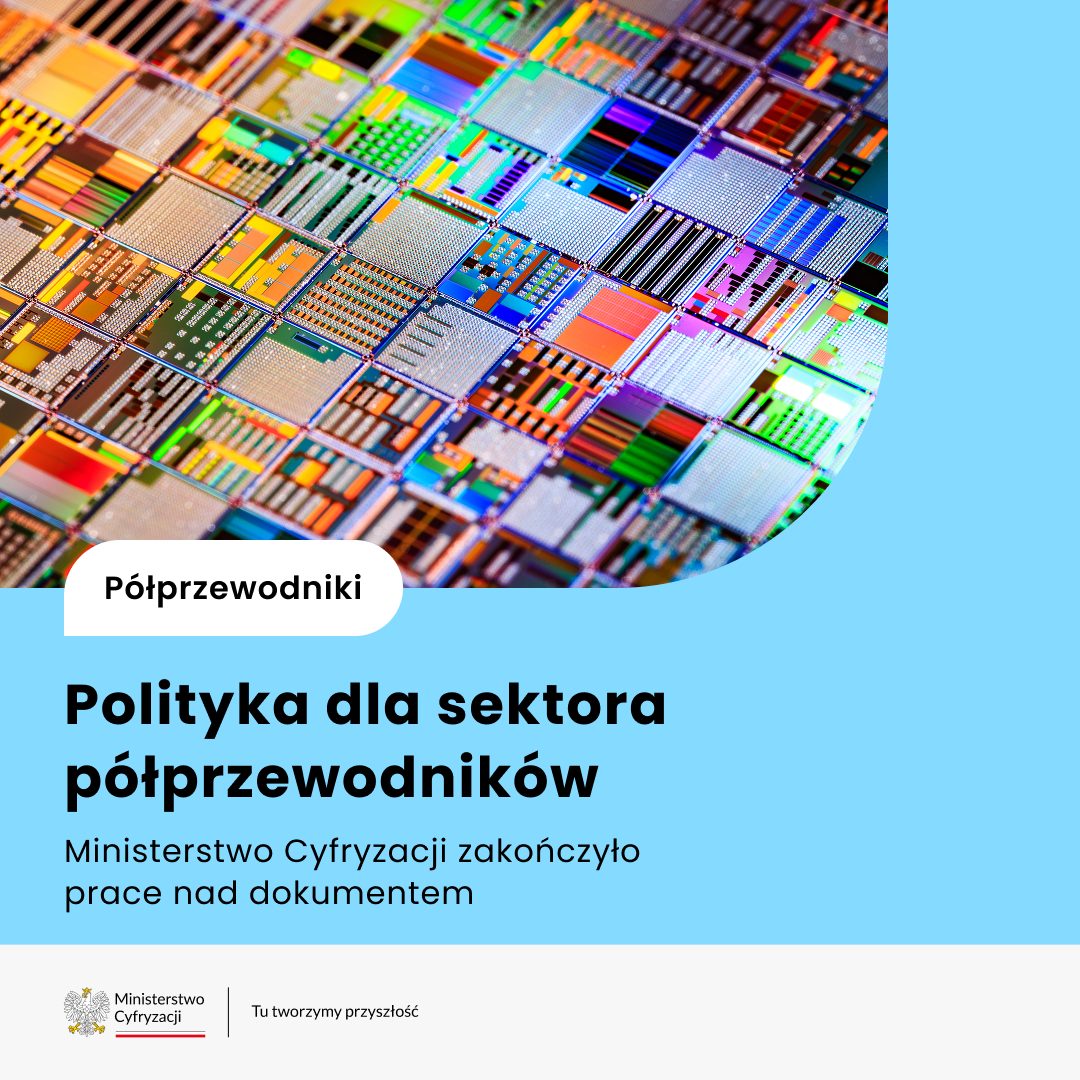Semiconductor policy - role and opportunities for the University of Warsaw
2025-06-25
The Ministry of Digitalisation has published a strategic document ‘Poland in the game for the future - policy for the semiconductor sector 2025+’, which sets the directions for the development of one of the key technology areas. This sector is being intensively developed at the UW's Faculty of Physics. The scientific teams of the FUW conduct advanced research into quantum states of light, semiconductor nanostructures, and materials used in optoelectronic systems. Researchers from the Faculty of Physics also actively participated in the public consultation of the document, enriching the national strategy for the development of the semiconductor sector with the perspective of the academic community.
Semiconductors are the foundation of modern technologies. Their design and production are now among the priorities of the European Union, and the development of the sector is driven by both the miniaturisation of circuits and new materials, advanced technological processes and the growing demand for their use in energy, telecommunications or quantum technologies.
Photonic semiconductor chips
A special place in the document is given to photonic semiconductor chips - integrated structures in which information is transmitted and processed using light. These are the solutions of the future for high-speed communication, modern sensors, and quantum technologies. Poland, according to the Ministry of Digitalisation document, thanks to close cooperation between science and industry, is today one of the European leaders in mid-infrared integrated photonics, with potential applications in autonomous vehicles, energy or remote diagnostics, among others.
This is an area of research that is being intensively developed at the UW Faculty of Physics. The FUW research teams specialise, among other things, in quantum states of light, semiconductor nanostructures and materials for optoelectronic systems. The development of expertise in wide bandgap semiconductors such as gallium nitride (GaN) is also important. This research is carried out within the Department of Solid State Physics and the Department of Optics of the FUW Institute of Experimental Physics and also the Information Optics Department and the Photonics Department of the FUW Institute of Geophysics.
Recognition for the UW and its scientific staff
The University of Warsaw has been listed among the key scientific institutions building national technological competence - alongside the institutes of the Łukasiewicz Research Network (IMiF), CEZAMAT PW or IWC PAN, among others. It was also listed as one of the leaders in student education in the field of semiconductors - together with the Warsaw University of Technology and the polytechnics of Wrocław, Kraków, Gdańsk and Poznań.
It is worth noting that the UW actively participated in the public consultation conducted by the Ministry of Digitalisation. The university's opinion was developed by researchers from our Faculty: Prof. Adam Babiński, and Prof. Barbara Piętka.
Infrastructure, competence centres, education - directions for development
The document identifies a number of priorities that directly affect the academic and scientific community. Among them:
- expansion of research infrastructure and establishment of centres of competence, such as the emerging InnoSemi Semiconductor Competence Centre, of which the UW is a consortium member,
- the construction of a national system for designing integrated circuits,
- launching pilot production lines to support technology transfer from laboratories to industry,
- creation of a technology park dedicated to the semiconductor sector - in cooperation between the university and industry,
- strengthening the educational system through scholarship programmes, industrial internships, mentoring and international cooperation.
New opportunities for students and young researchers
The new policy clearly emphasises the importance of universities in shaping human resource competencies for the semiconductor sector. It provides for the development of the teaching offer, the launch of new educational programmes, closer cooperation with industry and the building of international partnerships.
For students and doctoral students of the UW Faculty of Physics, this means new career prospects - participation in scholarship programmes, internships in the technology sector and research and development projects carried out in cooperation with industrial and academic partners at home and abroad.
Read more here.






